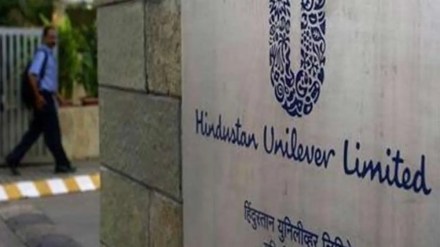Unilever global CEO Alan Jope said on Thursday that high inflation has hit demand from the rural population in India, but growth in urban markets remains strong. He exuded confidence that the India market will grow ahead, as the country continues to remain one of the key priorities for Unilever.
“Market growth in India remains stronger in urban areas than in rural areas, and that reflects the impact of high food inflation on low income consumers. We’re seeing rural markets broadly flat in value terms with lower volumes,” Jope said while addressing the company’s fourth quarter earnings call.
India is the second biggest market for Unilever in revenues after US.
The company’s chief financial officer, Graeme Pitkethly, said the full-year growth remained strong driven by India, south east Asia and Africa. “Our strength continuing in India, and it is very important that we continue to hold on to that strength,” he said.
Pitkethly added, “The markets are up in value, the monsoon season it was good overall, but food inflation is rising fast, that is having a bigger impact on less affluent part of the Indian population than elsewhere,” he said.
For Unilever, the Indian unit posted 15.6% growth, with price growth at 11.2% and volumes up by 3.9% in the fourth quarter ended December 2022. The company said in a statement that the strong double-digit growth in India was driven by pricing and positive volume growth supported by market development and continued strength of its premium portfolio.
Unilever said its market share is below 50% in nutrition and ice cream, as it has been impacted by US dressings business and India tea. “The India tea position is that, the market has shifted into very, very low price, low margin powdered tea where we choose not to compete. In the premium tea segment, we are gaining share, there is a shift within the market to very low cost tea where we, frankly see no margin to be made and don’t want to participate,” Jope said.
Hindustan Unilever (HUL), the India arm of Unilever had reported a 12% y-o-y increase in standalone net profits for the quarter ended December 31, 2022 at Rs 2,505 crore on the back of improved sales. Revenues from operations rose 16% y-o-y to Rs 14,986 crore as the company’s volumes improved 5% during the quarter. The company also took a price hike of around 11% on its products during the period. The operating margins, however, declined 180 basis points to 23.6% because of high commodity inflation compared to last year. However, margins improved quarter-on-quarter by 30 bps because of inflation moderating compared to the previous quarter.
“The unprecedented inflation that we have witnessed this year is gradually moderating from its peak. Consumer price inflation has also softened. Having said that, commodities remain elevated when compared with long-term averages,” said Ritesh Tiwari, chief financial officer at HUL, during the post earnings conference call in January.
On Thursday, Unilever reported quarterly underlying sales growth above expectations, aided by higher prices for its detergents, soaps and packaged food, the company reported its weakest operating margin in at least seven years and forecast a €1.5 billion increase in raw material costs in the first half. The company’s underlying sales rose 9.2% during the quarter.
